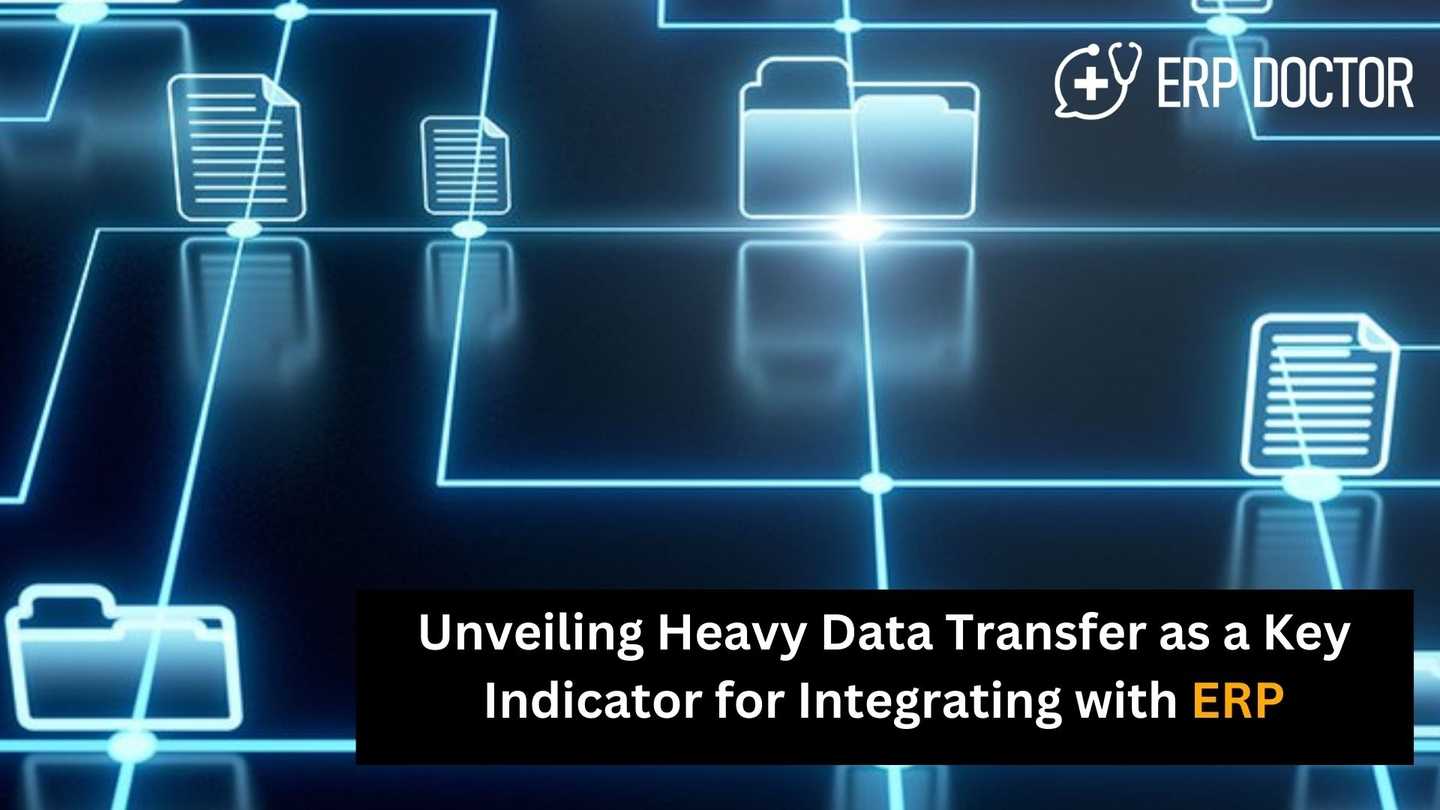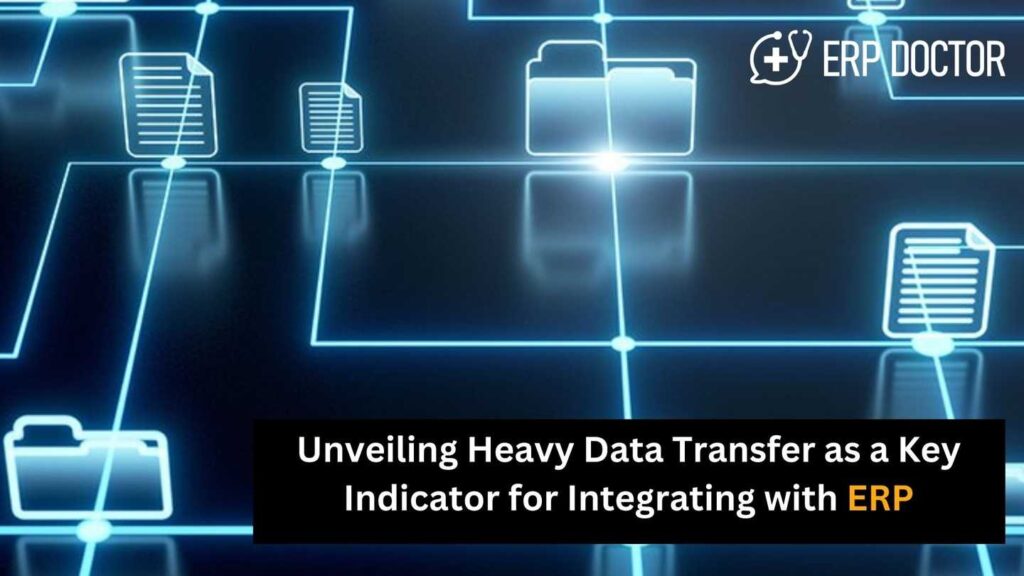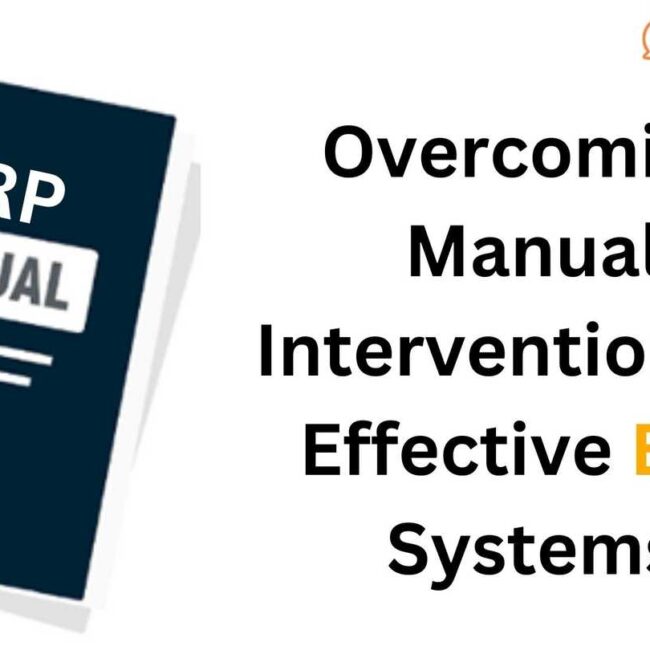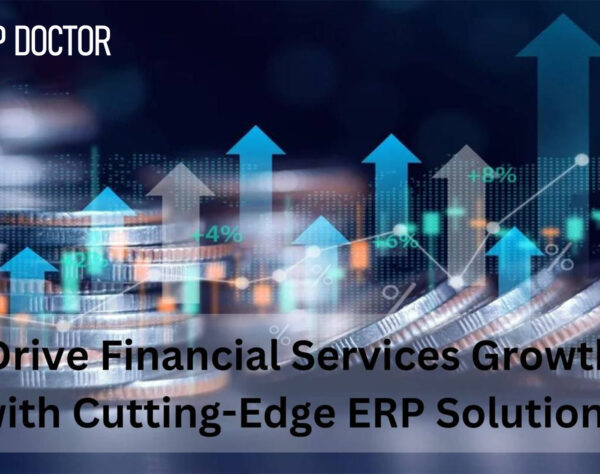
Unveiling Heavy Data Transfer as a Key Indicator for Integrating with ERP

Importance Of Heavy Data Transfer as a Indicator for Integrating with ERP
In today’s rapidly evolving business landscape, the efficiency of data management is a crucial factor for success. One of the most compelling reasons to integrate ERP systems with third-party applications, hardware, or software is the necessity for heavy data transfer. Understanding this key indicator can streamline operations and improve overall productivity.
The Challenge of Heavy Data Transfer
Manual data transfer between systems can be a tedious and often impossible task when dealing with large volumes of data. This challenge is especially pronounced in industries that rely on complex transactions and large datasets. Whether it’s CRM application integration, e-commerce integration, service ticketing integration, or customer complaint integration, the need for efficient and accurate data transfer is paramount.
Heavy Data Transfer Explained
Heavy data transfer refers to the movement of large volumes of data between systems. In a simple yard system, this manual data transfer can lead to bottlenecks, errors, and inefficiencies. An ERP system that can seamlessly integrate with various software applications and hardware ensures that data flows smoothly and accurately across different platforms.
Key Benefits of ERP Integration
- Efficiency and Speed: Automated data transfer eliminates the need for manual intervention, reducing the time and effort required to move data between systems. This leads to faster processing times and improved operational efficiency.
- Accuracy and Consistency: Manual data entry is prone to errors, which can have significant repercussions. ERP integration ensures that data is consistently accurate across all systems, reducing the risk of costly mistakes.
- Scalability: As businesses grow, so does the volume of data they handle. An integrated ERP system can easily scale to accommodate increased data loads, ensuring that operations remain smooth and uninterrupted.
- Real-Time Data Access: Integrated systems provide real-time access to data, enabling better decision-making and more responsive customer service. This is particularly important in industries where timely information is critical.
Industries using Heavy Data Transfer needs ERP Integration
CRM Application Integration
Customer Relationship Management (CRM) systems handle vast amounts of customer data. Integrating CRM applications with an ERP system ensures that customer information is up-to-date and accessible across all departments, leading to improved customer service and satisfaction.
E-Commerce Integration
E-commerce platforms generate significant data from transactions, inventory management, and customer interactions. ERP integration facilitates seamless data flow, ensuring that inventory levels are accurate and orders are processed efficiently.
Service Ticketing Integration
Service ticketing systems manage numerous service requests and tickets. Integrating these systems with an ERP solution ensures that service data is efficiently tracked and managed, leading to quicker resolution times and enhanced customer support.
Customer Complaint Integration
Handling customer complaints effectively is vital for maintaining customer loyalty. ERP integration allows for efficient tracking and resolution of complaints, ensuring that issues are addressed promptly and accurately.
In conclusion, heavy data transfer is a key indicator for integrating ERP systems with third-party applications, hardware, or software. The benefits of such integration include improved efficiency, accuracy, scalability, and real-time data access. By addressing the challenges associated with manual data transfer, businesses can streamline operations, enhance productivity, and provide better customer service. Embracing ERP integration is not just a technological upgrade; it’s a strategic move toward achieving long-term business success.
To learn more about our services, please visit us at: https://erpdoctor.in/
Embark on an inspiring journey today – Visit our website and discover a world of knowledge, creativity, and endless possibilities! Don’t miss out on exclusive content and exciting updates. Click here to explore and be part of our thriving community!






